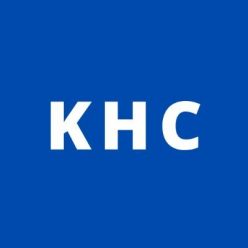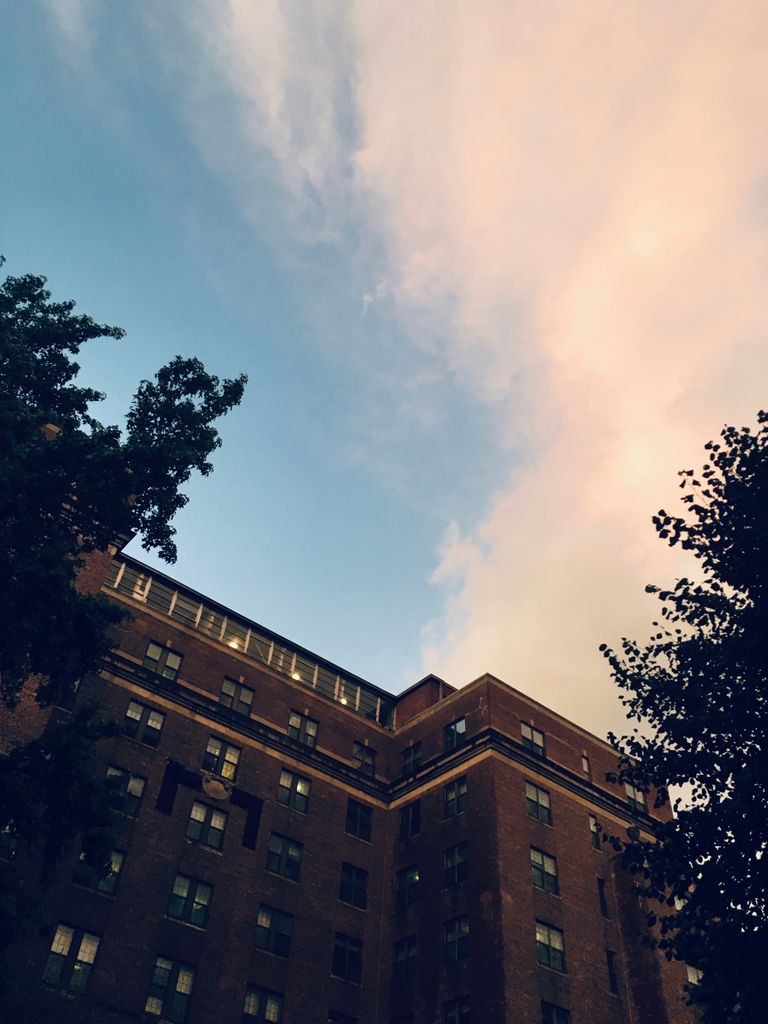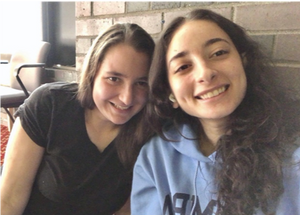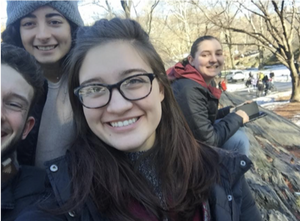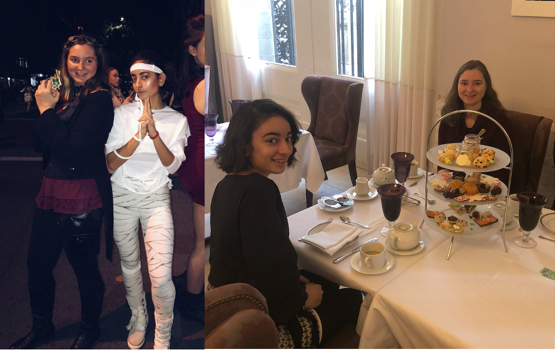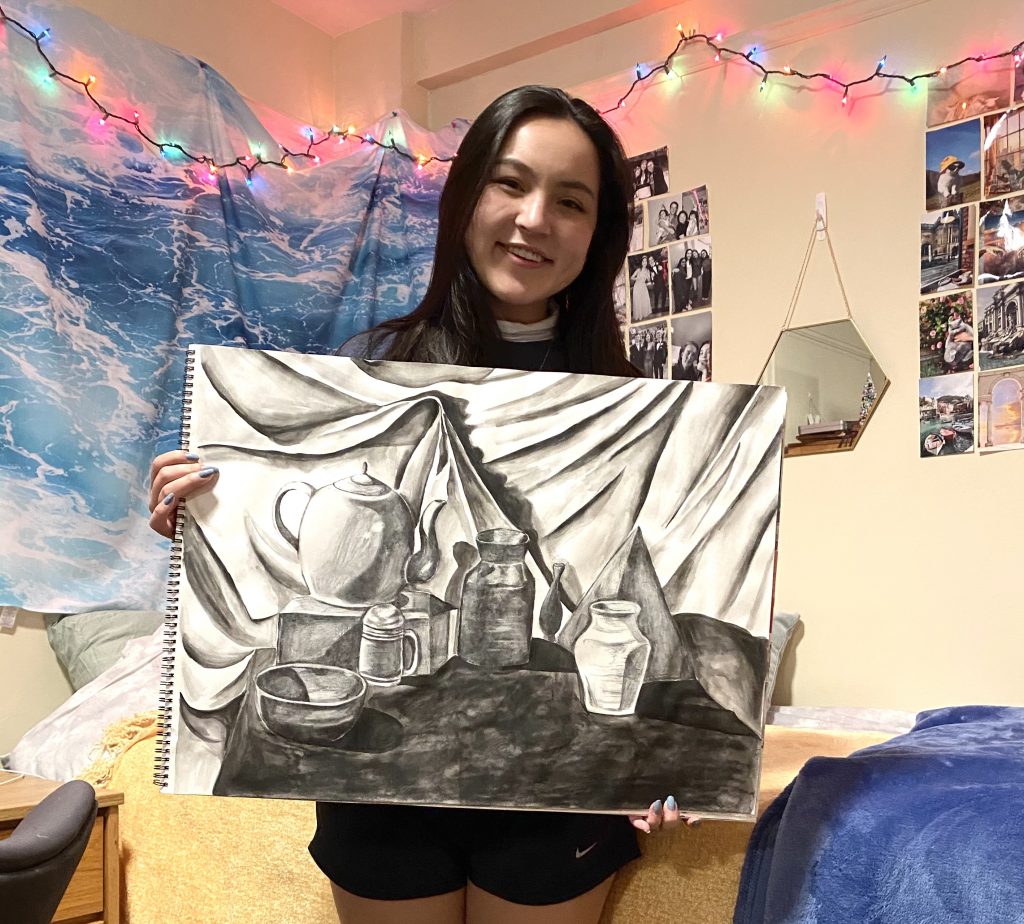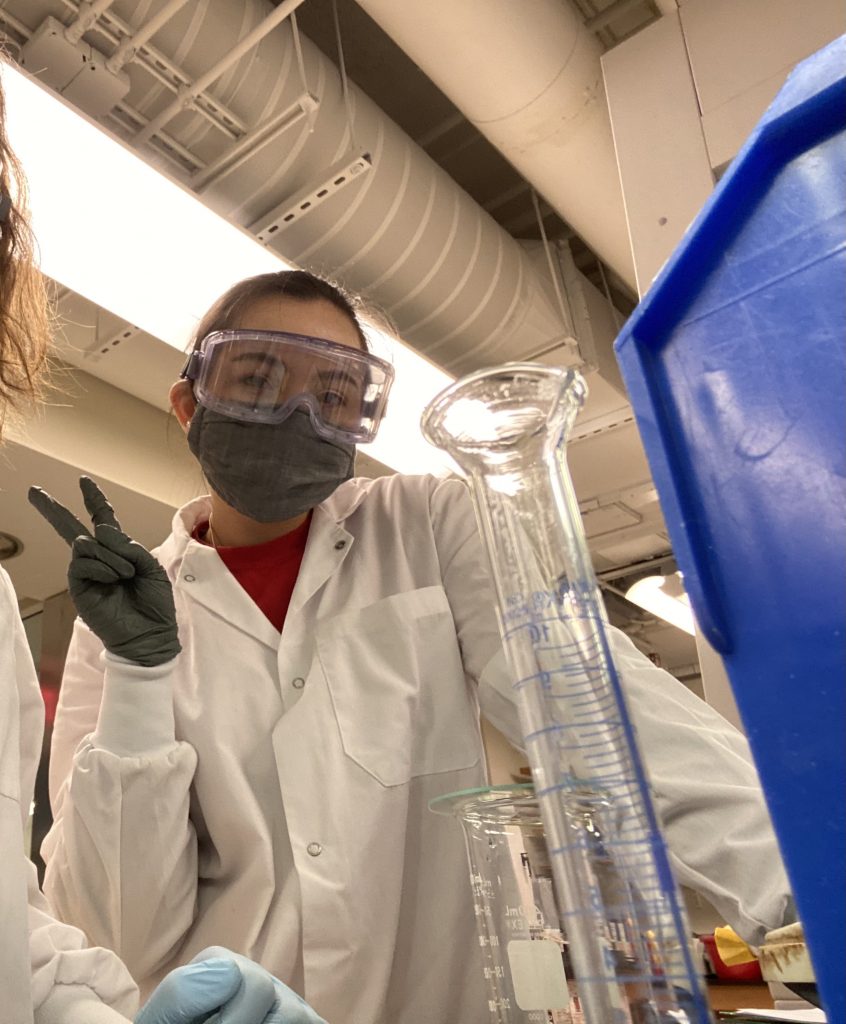By Emma Hartman (ENG’23)
5:40 AM: I wake up. OK, OK: don’t panic reading this — as hard as it is to believe, this is something I do to myself willingly and for reasons completely unrelated to academics. My favorite hot yoga class is at 6 am on Wednesdays at a yoga studio less than 5 minutes from my dorm. There are other yoga classes at normal times, but I really like this one.
6 AM: Hot Yoga! I started practicing yoga about a month ago to shake up my routine and quickly got addicted. I use it to manage my stress, stay in shape, and as something fun and COVID safe that I can do with friends.
7 AM: I take my time on the walk back to my dorm. I live in a safe area that’s incredibly pretty in the morning and I’m trying to enjoy it more. When I get back to my brownstone, I make some breakfast (I’m currently training in the art of microwave-based cooking) and shower before class.
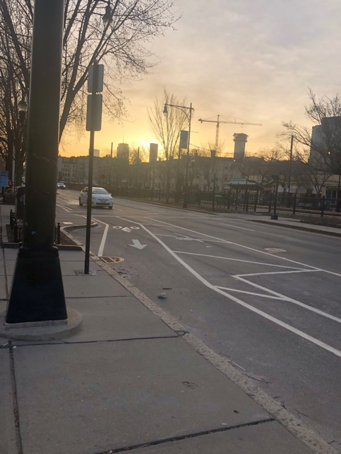
9 AM: I arrive at the George Sherman Union (GSU), our student center, before my first class and meet up with my friend Sarah. Our Differential Equations lecture is remote learning only this semester, but we meet up to get Starbucks, catch up, and to take the class together in the library attached to the GSU. We claim that we keep each other accountable and focused, but we almost always wind up talking during the slow parts of class.
10 AM: Sarah and I leave the GSU and walk to our next classes together. I have my Cell Biology and Biotechnology lecture, where I run into Natalia, one of my friends from Kilachand. We met during our first semester of freshman year in a Kilachand seminar on Latin American music. I met a lot of engineers in that class since we all took it to fulfill the same HUB units. I still see a lot of them in my engineering classes or around campus!
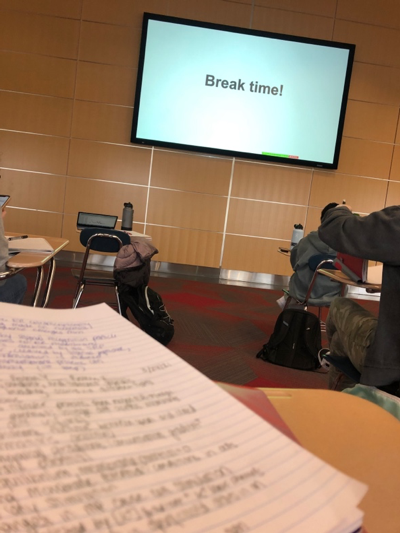
12 PM: My lecture is over, and I want some lunch. Some days I’ll stay by Agganis Arena, where my lecture was, and eat with my friend Karolyn who lives in West Campus. Other days, I’ll head back eastward and eat with my friends Chloe and Sarah, who are studying at the GSU. No matter where I am, I always try and use meals as a time to see my friends.
1 PM: I head into the BU biomedical engineering research lab that I work in. We study mice to learn more about the neural circuits in the brain responsible for movement. Right now, I’m working with a PhD student on her latest project. Together we’ve been training our 3 mice—Matcha, Mocha, and Macchiato—to perform different behavioral tasks. Once they’re trained, we use electrophysiology probes and optogenetic techniques to record neural activity in different parts of their brains (basically: we stick a sensor into a genetically engineered mouse’s brain and choose what areas of the brain we want to record data from by using a laser to selectively silence groups of brain cells). I ask my grad student a truly annoying number of questions about the research, and she answers every last one because she’s genuinely happy to help me learn.
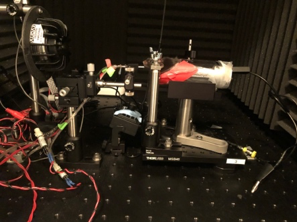
4 PM: It’s time to log onto Zoom for my HUB co-curricular, a course that I take in tandem with KHC HC 302. We teach Boston high schoolers about public health through a local program called Boston Area Health Education Center. It’s a great way to give back to the local community, learn more about public health and the Boston Public School system, and secure a coveted HUB unit.
6 PM: I log off of Zoom and knock on my roommate Iris’s door. We’re off to go find dinner so we can bring it back home, eat on the couch, and talk about our days. Sometimes we put on an episode of Grey’s Anatomy or the Bachelor while we eat
7 PM: I do some homework and answer some emails for my Girls Who Code club.
8 PM: I log onto Zoom office hours for my engineering mechanics class. I work on my homework and private message my friend Jenny, who’s also here because she’s struggling with problem #7 too.
9 PM: My roommate wanders back out to our couch and wants to figure out our weekend plans. We bring our laptops to the couch and work while we talk. Eventually, we either finish or abandon our work and just relax.
10:15 PM: I start getting ready for bed, write in my journal about the day, and look at my color-coded Google Calendar as I write in my planner about tomorrow. Tomorrow’s schedule is incredibly different, but no less exciting!
